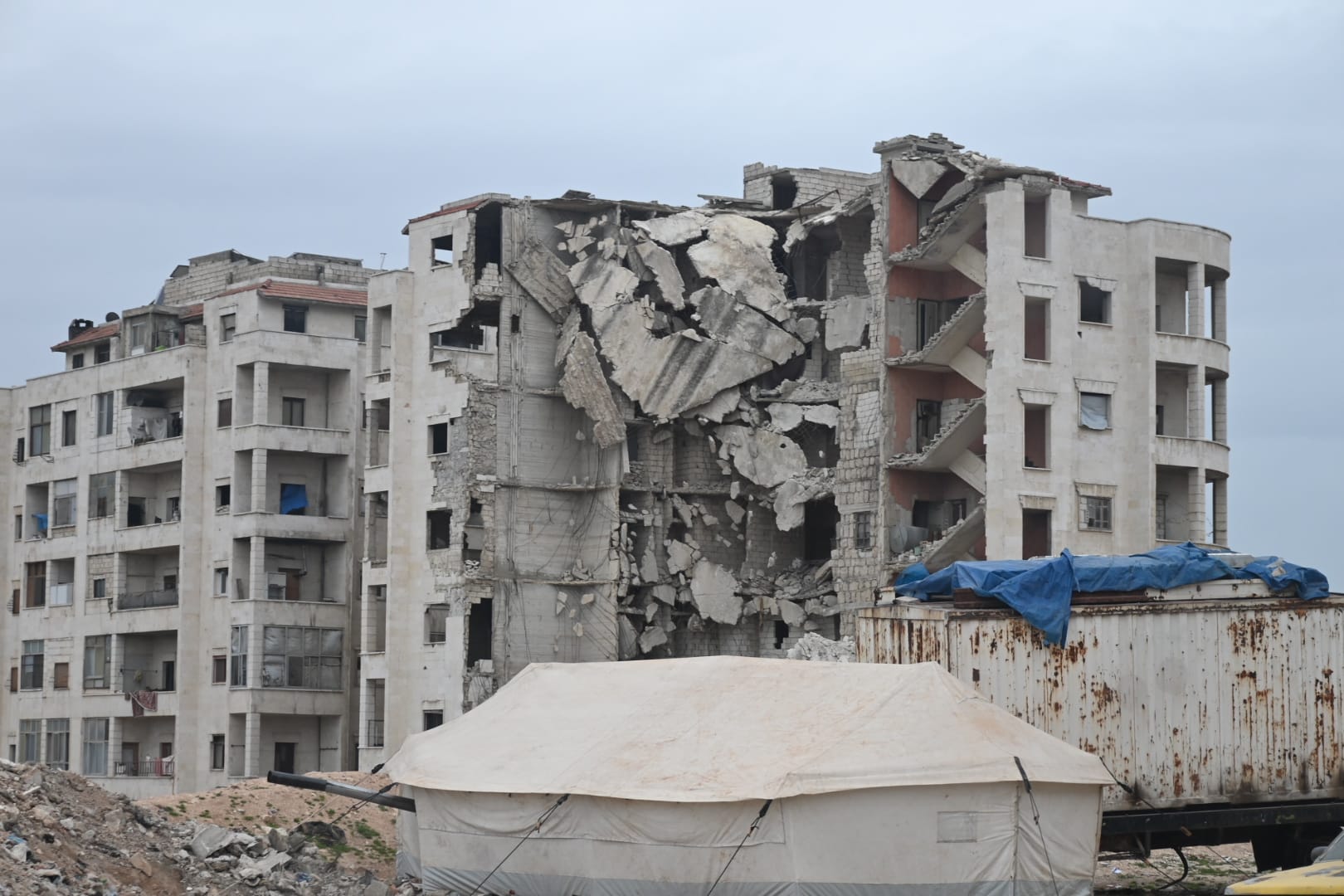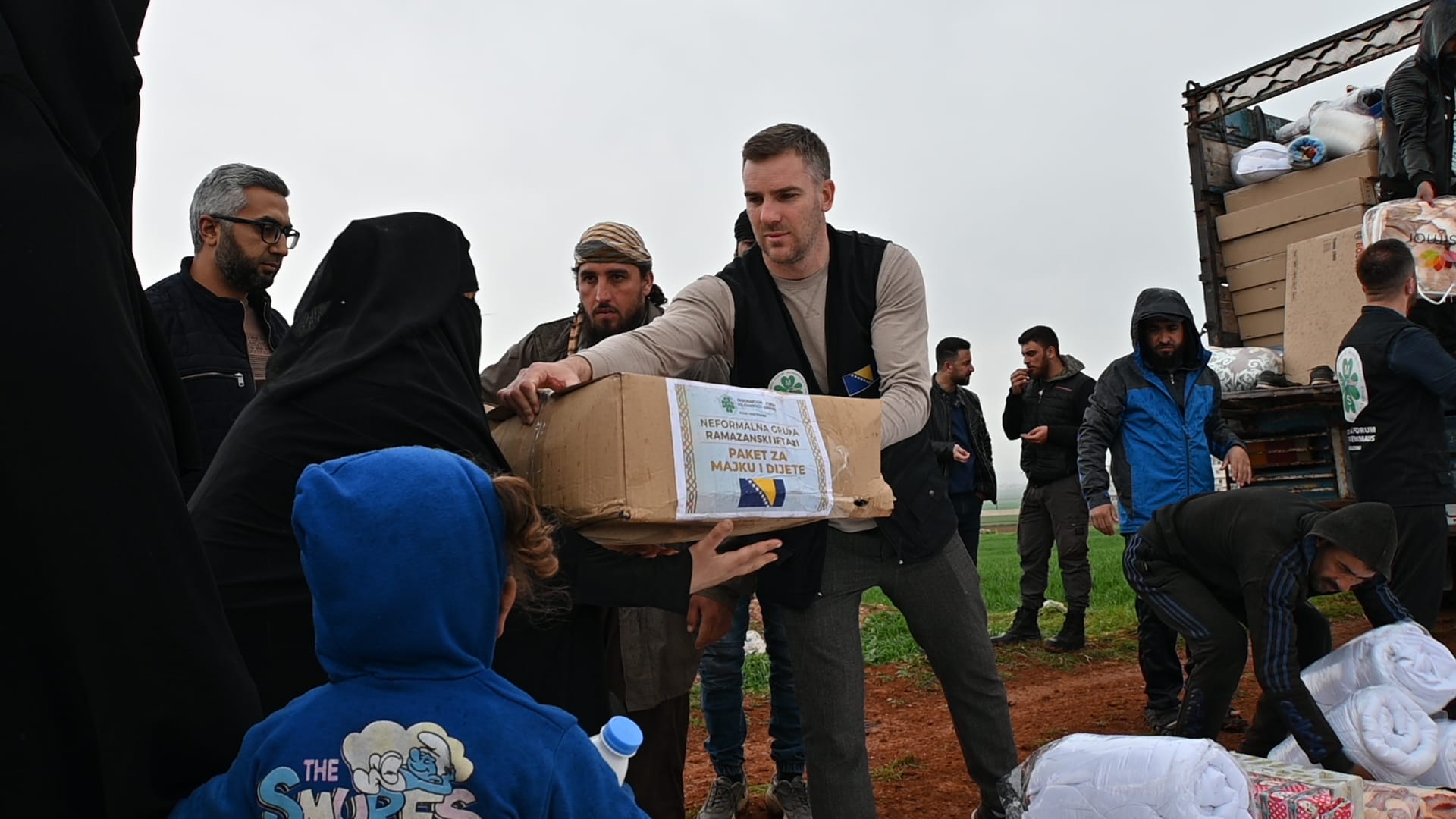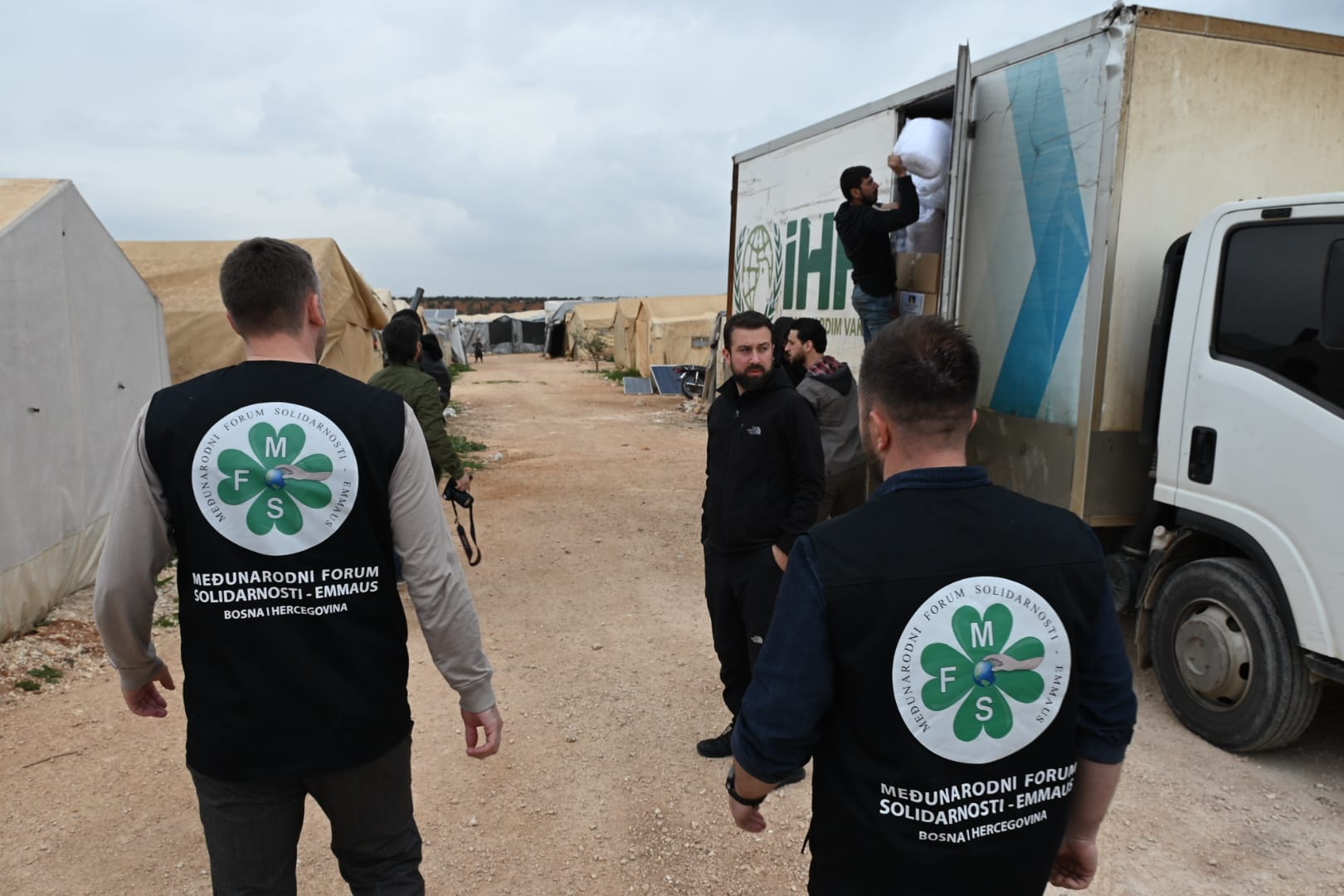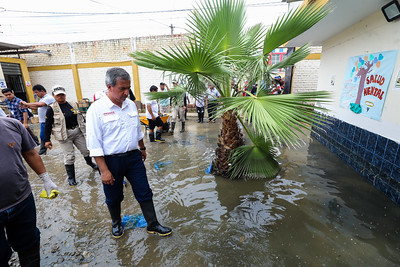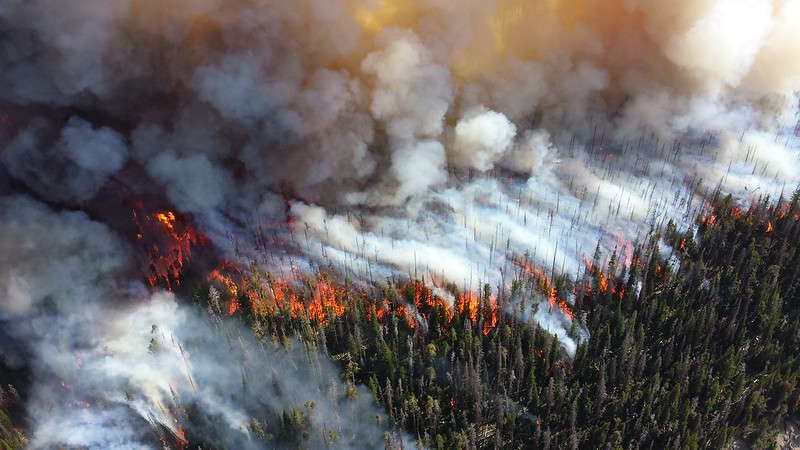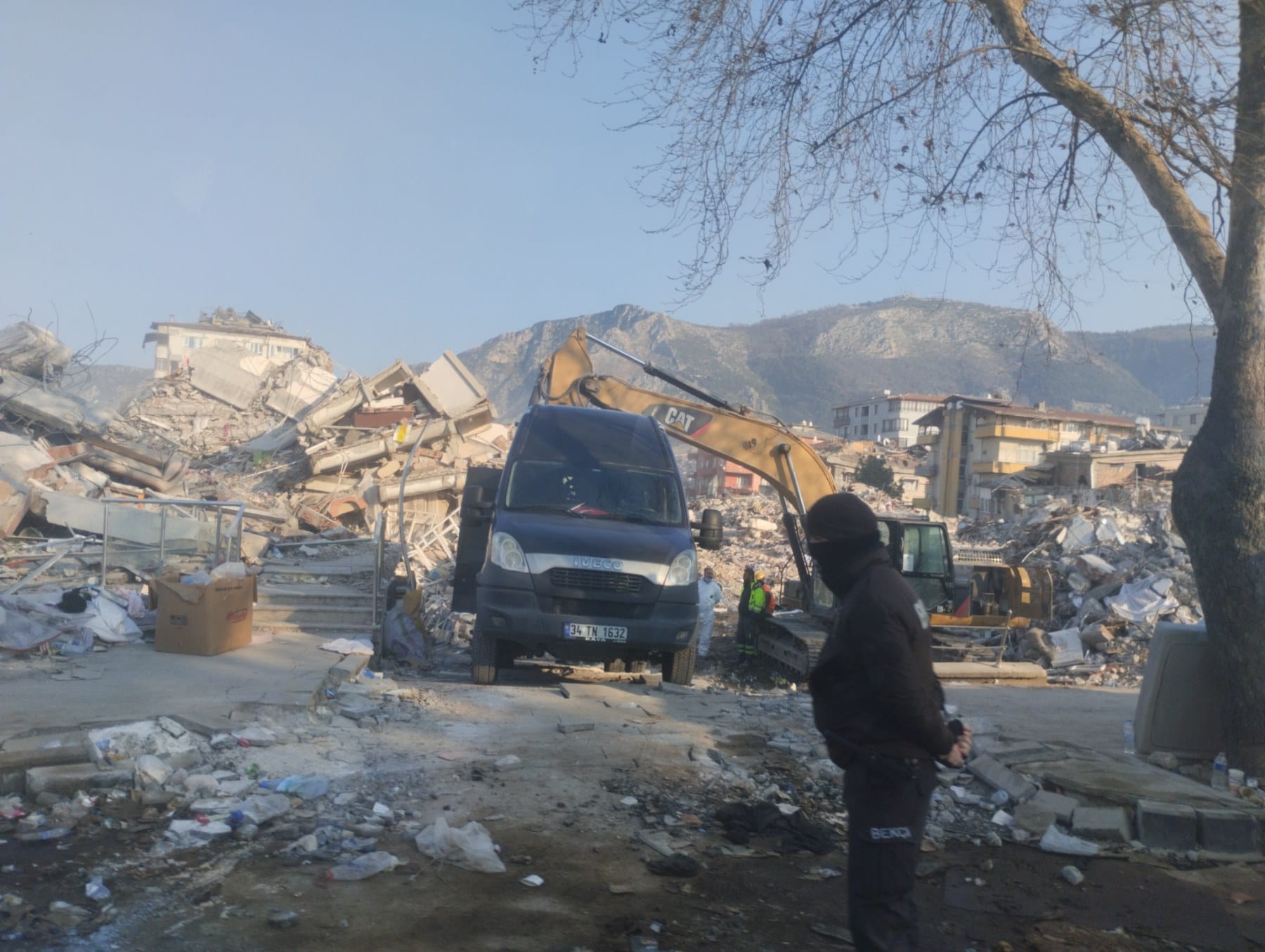Turkey-Syria Earthquake: “Some towns will have to be rebuilt from scratch”
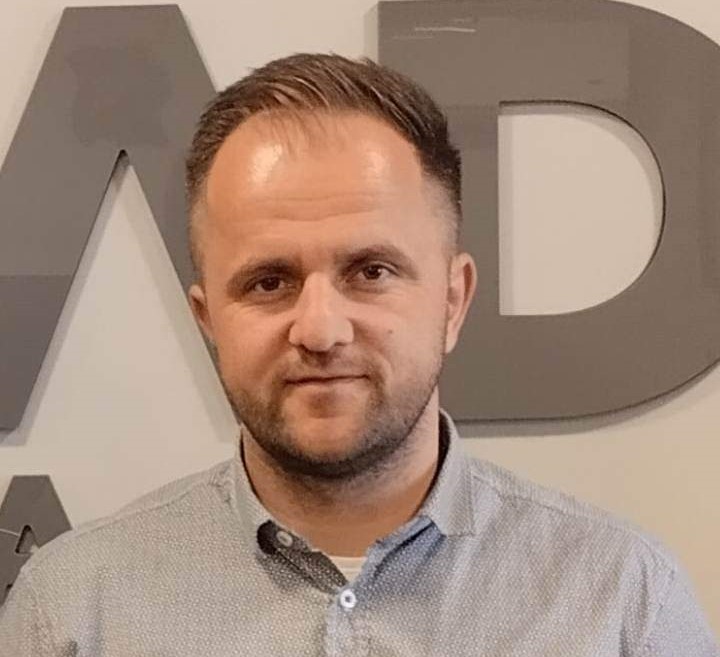
Thanks to the financial contributions of the Emmaus groups that responded to the movement’s appeal, over the last few weeks Emmaus International has been working with the Bosnia and Herzegovina Emmaus group, International Forum of Solidarity (IFS), which is working on the ground directly with its local partners.
Interview with Elmedin Skrebo, IFS.
Emmaus International: What is the current situation like in Turkey and Syria?
Elmedin Skrebo: The needs are very diverse and are acute in many places. Syria is experiencing multiple shocks between the pre-existing problems and this terrible earthquake which amplifies the difficulty and fragility of their lives.
In Turkey, the situation is also very complex, to the extent that it is difficult to establish priorities. The country has been ‘divided’ in two, between people who were already in need and those who have now been pushed into poverty. Millions of people are homeless.
It is essential for us to be there on the ground to be constantly informed and to tailor our actions to local needs.
Can you tell us about your work on the ground to help the people affected? Where are the IFS teams working?
We have been sending supplies, we are continuing to do so, and will keep it up as long as we can. These are mostly food items and hygiene products. We are keen to distribute these directly to people ourselves wherever possible, especially in camps and multi-family lodgings. Some of the food is also stored in our partners’ warehouses, who run fixed and mobile kitchens.
Nappies and hygiene products are distributed to mothers with children, to small orphanages, as well as in homes and households that have taken in a large number of people to care for. Our partners and teams work together and are present in the areas around the cities of Reyhanli, Hatay, Gaziantep and the border town of Antakya, from where we cross into Syria.
What are the affected population’s primary needs?
For the time being, the primary needs are food items (flour, pasta, oil, rice, canned food), hygiene products (nappies, etc.) and, of course, accommodation, such as tents and solid alternative housing (containers, units, etc.).
What do you feel are the main challenges for the Turkish and Syrian people affected?
It will take a long time for them to recover, particularly from the psychological trauma, which for some will be permanent. Yet they are hard-working and humble people, and that is their core strength. They accept everything as God’s will, which is why I think they will eventually recover from this psychological crisis. Some cities, such as Antakya, have to be rebuilt from scratch; others have been less affected and can quickly begin renovation work. In Syria, the crisis is deepening. The war has been ‘forgotten’ for the time being. Therefore, the challenge is maintaining political stability in this region. Can this natural disaster bring the two parties together? At the moment, the region is in a state of emergency, and people are living in extremely difficult situations. In their respective circumstances, external solidarity is a means to ease their plight.
